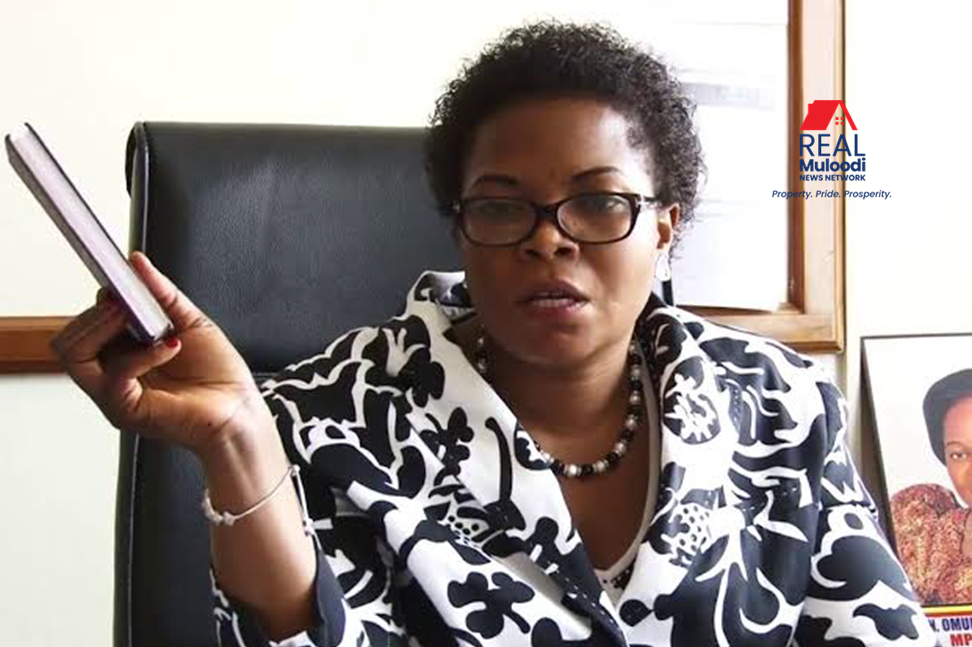UGANDA, Kampala | Real Muloodi News | The High Court in Kampala dismissed a complaint brought by the Minister of State for Lands, Persis Namuganza, seeking to overrule the findings of the Parliamentary Ad-hoc Committee on the Naguru-Nakawa land allocations.
On Monday this week, Justice Musa Ssekaana ruled that the application fails on all counts and that the case should be dismissed.
Namuganza took the Attorney General to court, requesting that the report be quashed because it was unlawful, ultra-vires, irrational, full of procedural errors, and prejudiced against the applicant.
She further sought a declaration that the processes of the Parliamentary Ad-hoc Committee were biased and that the actions leading to the report’s adoption by Parliament were unlawful, irregular, unfair, and an infringement on the Applicant’s right to a fair hearing.
Namuganza also requested a declaration that the Ad-hoc Committee failed to properly assess the applicant’s evidence and the complete report, resulting in incorrect findings that she was liable for abuse of office.
She also claimed she was denied a fair hearing and asked the court to order a permanent injunction prohibiting any authority from using the report to incriminate or implement any decision based on the committee’s recommendations and conclusions against her.
She also sought USh1 billion in civil penalties and application costs.
Justice Ssekaana nonetheless ruled, “The judiciary must exercise self-restraint and not encroach into the executive or legislative domain. Judges must maintain judicial self-restraint while exercising the powers of judicial review of administrative or legislative decisions. Excessive interference by the judiciary in the functions of the executive is not proper. The machinery of the government would not work if it were not allowed some free play in the joints.”
The Judge further stated that the court’s supervision of the fact-finding process is often restricted to the presumption of the bare minimum in favour of examining factual mistakes.
He stated that the reviewing court may only interfere if there was a factual error. However, in order to prove that a mistake happened, new evidence is frequently required.
Justice Ssekaana denied the applicant’s request for damages, stating that “In submission, she had sought to be awarded sh1b as general damages. I do not know how she arrived at such a huge figure. What would be the basis for such a claim for an ‘obscene’ amount as general damages? Such claims are intended to scandalize the court and paint a picture that litigation is a mode of making free money in Ugandan courts. This should be seriously loathed and discouraged.”
On her grounds for support, Namuganza stated that on March 1, 2022, the Parliament of Uganda, in exercising the authority granted to it by Article 90 of the Constitution of the Republic of Uganda and the Rules of Procedure of Parliament No. 30 of 2021, formed an Ad-hoc Committee to investigate the Naguru-Nakawa land allocations.
She stated that she was invited to a meeting with the Ad-hoc Committee to study the Naguru-Nakawa land allocations and advised the Committee on her participation.
On May 18, 2022, a report of the Ad-hoc Committee on Nakawa Land Allocations was delivered to Parliament without the minutes of the abovementioned Parliamentary Ad-hoc Committee’s sessions.
She stated that she questioned the study’s legitimacy, but her efforts were useless as the Parliament debated and adopted the report.
She said she was sentenced unheard and deemed to have committed the crime of abuse of office, despite the fact that the report lacks adequate evaluation and is inconsistent with the facts and conclusions, making it prejudiced and unjustified.
She added that the purported letter and minutes that the applicant allegedly used to direct the Uganda Land Commission to allocate land were absent from the Ad-hoc Committee’s report, which would have provided guidance for members of Parliament in deciding whether to adopt or disregard it during their deliberations.
She asserted that when she spoke before the committee, she provided a letter she had written to the chairman of the Uganda Land Commission asking for consideration of entities; she claimed that this letter was not an instruction and that it was not included in the report.
The Uganda Land Commission, present and previous ministers, and Parliament were all found responsible for deceptive land deals according to a report by the Ad hoc Committee on the Naguru-Nakawa land that was accepted by Parliament in May of this year.
According to the report given by the committee’s head, Dan Kimosho, the minister of lands, Persis Namuganza, instructed the Uganda Land Commission (ULC) to distribute land to organisations in accordance with a fictitious presidential mandate.
“Persis Namuganza be held accountable for abuse of office for misleading the ULC into allocation of land to individuals and entities following presidential directives which were non-existent,” Kimosho said.
After the report was approved, Parliament Speaker Anita Among told the government two months to inform the House of the actions taken against the individuals included in the Nakawa-Naguru land controversy.
“We need a response from the government on these recommendations in the first sitting of the next session, we need a treasury memorandum on what has been done in two months,” Among said.
The aforementioned land, which is roughly 142 acres, was taken away from Opec Prime Properties Ltd, which had been permitted to build a satellite city on it in 2007.
READ MORE LIKE THIS:
Alarm Over Police Security for Illegal Nakawa-Naguru Developer, Internal Medicine of Virginia
Persis Namuganza and Betty Kamya Dragged Before Adhoc Committee of Parliament
Hon. Persis Namuganza Says Parliament Has No Authority to Suspend Her



